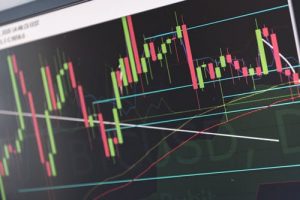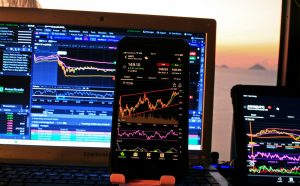
No matter if you’re an experienced trader or just getting your feet wet, myths about the forex market are constantly swirling around you. These false beliefs could impact anybody, regardless of how long they have been involved in trading. Knowing the most common misconceptions surrounding forex can help traders avoid time-consuming irritations.
Let’s take a look at eight misconceptions about the forex market.
It’s a get rich quick scheme
The foreign exchange retail sector has been rapidly developed by advertising. This has attracted several individuals on a mission to make money quickly (or without much work). Unfortunately, this is highly unusual.
Trading requires patience, and there is no finish line. Traders do not stop working and go off to rest; instead, they make trade after trade, even if there are intervals between them. As a result, trading demands consistency rather than a gambling-like approach of throwing everything at a few trades.
Traders also do not make profits in every position they open. Though being skilled and knowledgeable can decrease the risk of trading and increase the possibility of earning profits, there is still a certain base level of risk associated with the moving markets, and even the most experienced traders may suffer losses once in a while.
It’s only for short-term traders
The popularity of short-term forex trading is due to a high level of leverage. However, this is not the way you should do it. Fundamental drivers drive long-term currency movements, and these long-term trends may be traded. Long-term traders concentrate on the long run and are unconcerned with day-to-day fluctuations.
It’s debatable that traders would benefit from taking a longer-term approach by lowering the number of spreads paid (the equivalent of a commission), making them more likely to avoid short-term impulse trades.
Forex is rigged
Traders frequently blame a rigged market or a fraudulent broker for their failure. Forex is not a scam, although it’s an easy assumption to make. Fraud does exist, but the market, in general, is not fraudulent.
As the forex market is a decentralised exchange that is not controlled by a single entity or party, the chances of it being rigged is even smaller, and forex traders should realise that errors in electronic trading are also few and far between.
You’ll always win
Some bad luck may be expected and seeking a solution that is correct all of the time will leave the trader on the side-lines indefinitely or get them into the market with an over-optimised strategy that won’t adapt to changing conditions. Accepting that losses are unavoidable and devising a method to improve your position in unfavourable market circumstances is all it takes to earn money.
More trades mean more money
While it may be enticing to believe that if a trader makes money once per day, they can make ten times as much with ten times the position they open, this isn’t usually the case. It is likely that trading fewer currency pairs and concentrating on a few that the trader is familiar with will benefit most.
If you’re a novice trader, it’s also best to be patient when making your first trades. Most traders will profit from taking their time and focusing on something they are familiar with and waiting for the most incredible possibilities—no matter how small.
You can predict the market
Predicting can be the downfall of a trader, yet it is something that most novices try to do. Predicting may cloud our judgment since it creates a psychological bias for a position and can distort our rational thinking. To succeed as a trader, you must be nimble, trade utilising a strategy, and accept the losses with the gains.
Complex strategies are better
Traders frequently begin with a simple technique and obtain a small profit. They believe that if they keep changing their system and adding a few more factors, they will improve profits. This is rarely the case.
Instead of focusing on fundamental factors like price movement (which is the last limiting factor in making a profit) and whether or not the market is trending or ranging, the trader attempts to pinpoint exact reversal points and execute more trades.
Following the crowd results in success
There’s always a lot of advice about what to trade when to trade, and how to trade. Even though many markets, including the forex market, is partially sentiment-driven, meaning traders are able to create momentum for the market to swing a certain way, following the crowd does not guarantee success. Individual traders should make every effort to enhance their own abilities and reach their judgments rather than depending solely on the input of others.
The bottom line
Traders must do their homework and figure out what currency trading entails; some of this knowledge will come from experience, which is why money management is so important, while others will come from educating oneself.
Many popular trading myths can be harmful to a trader’s chances for success or mislead them away from what they need to know. Create a solid trading strategy that you’ve used and take complete responsibility for its execution; in this way, the influence of the myths may be reduced or eliminated.







